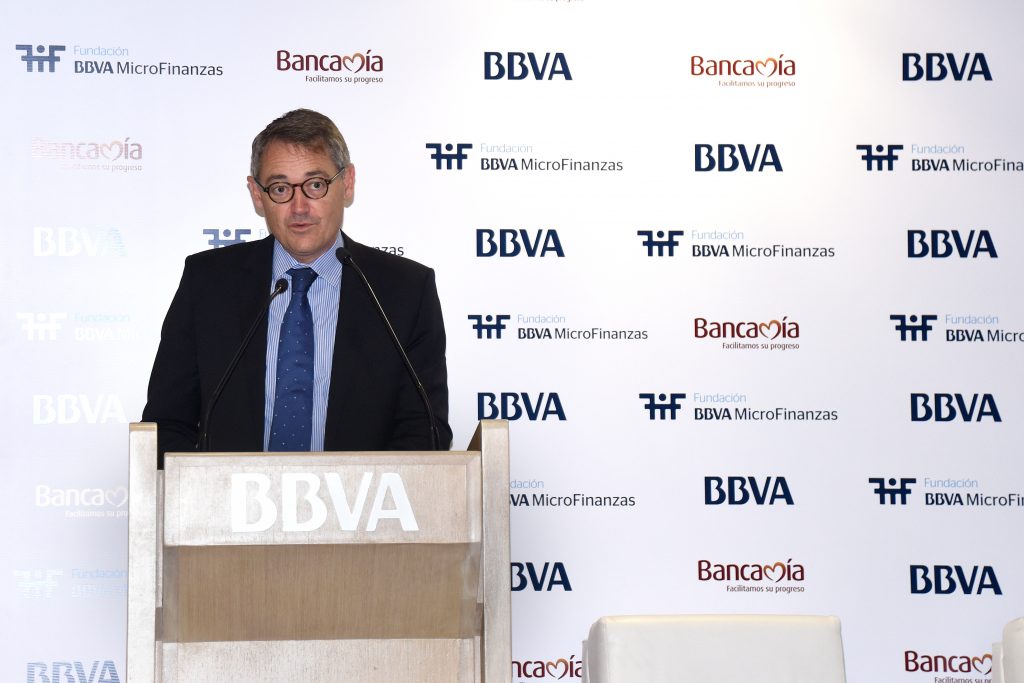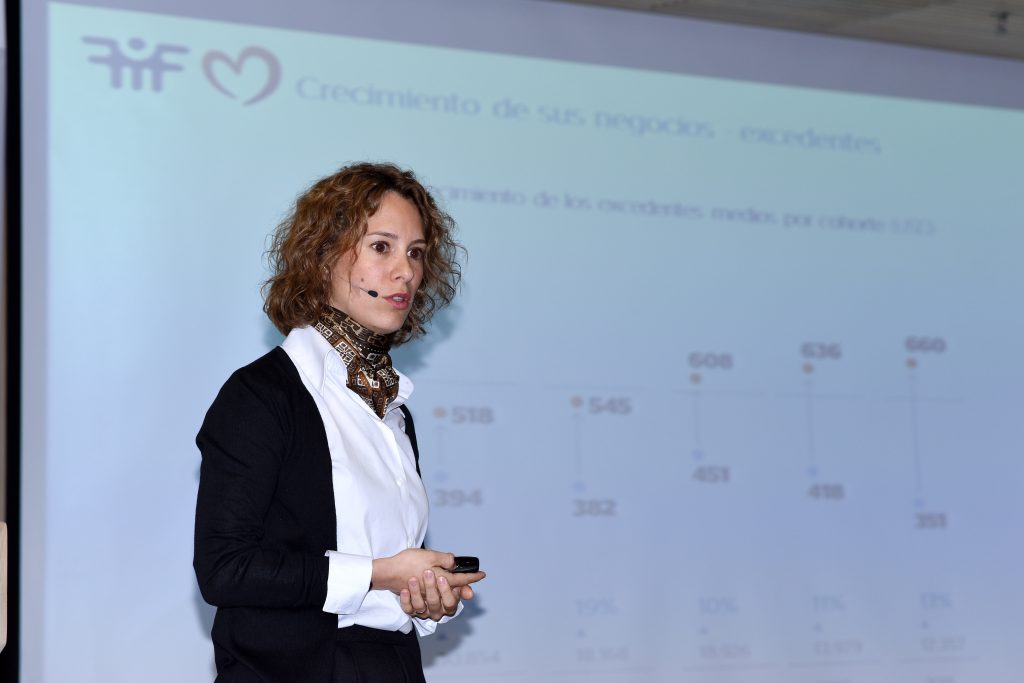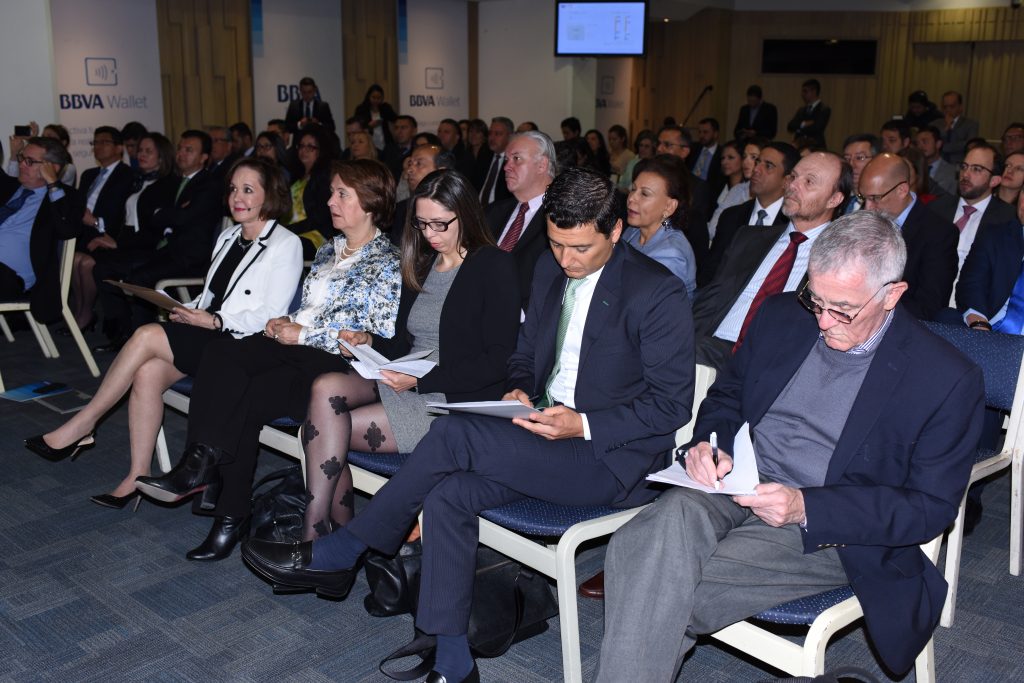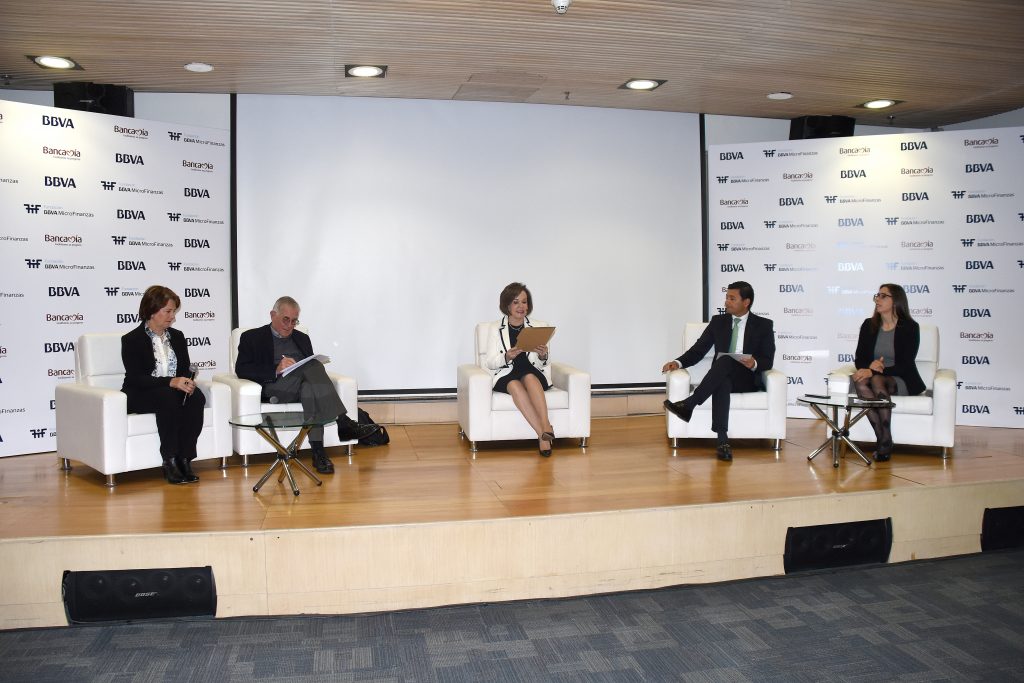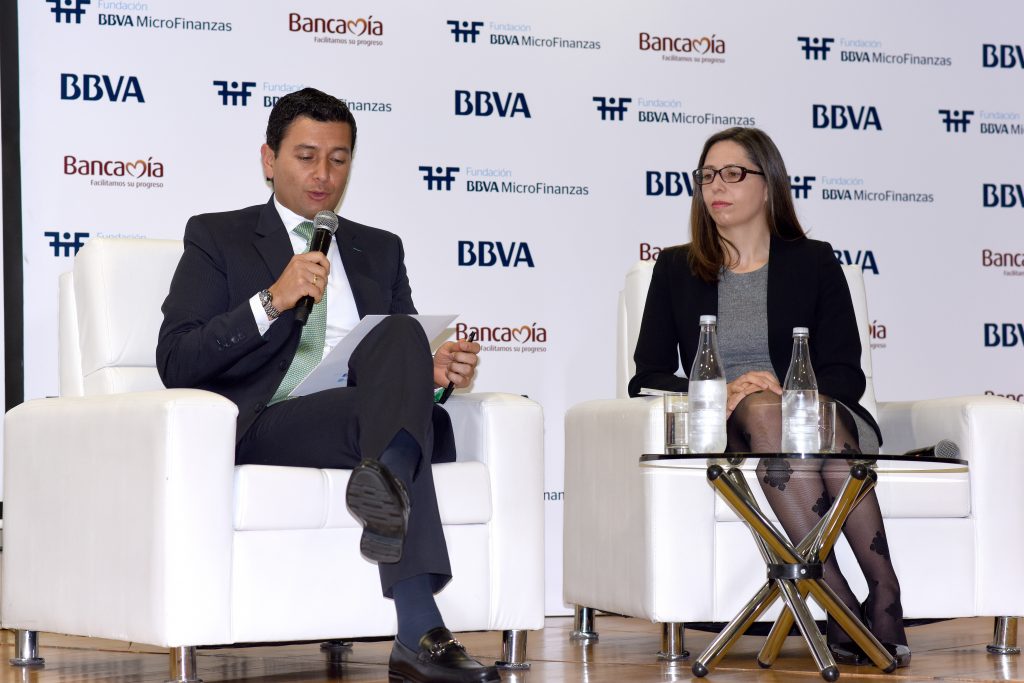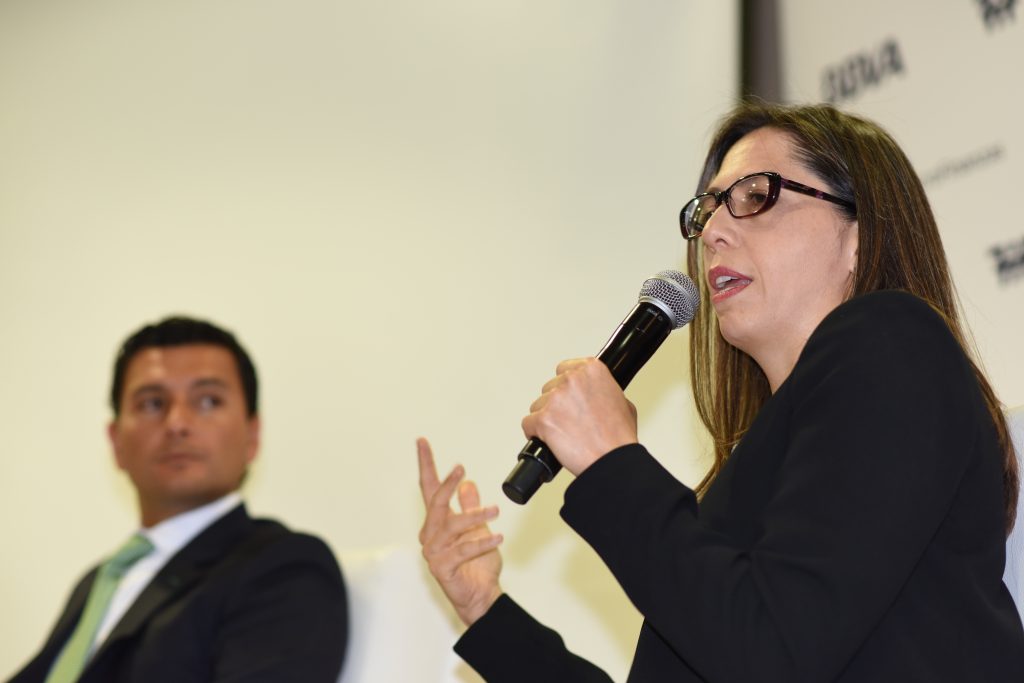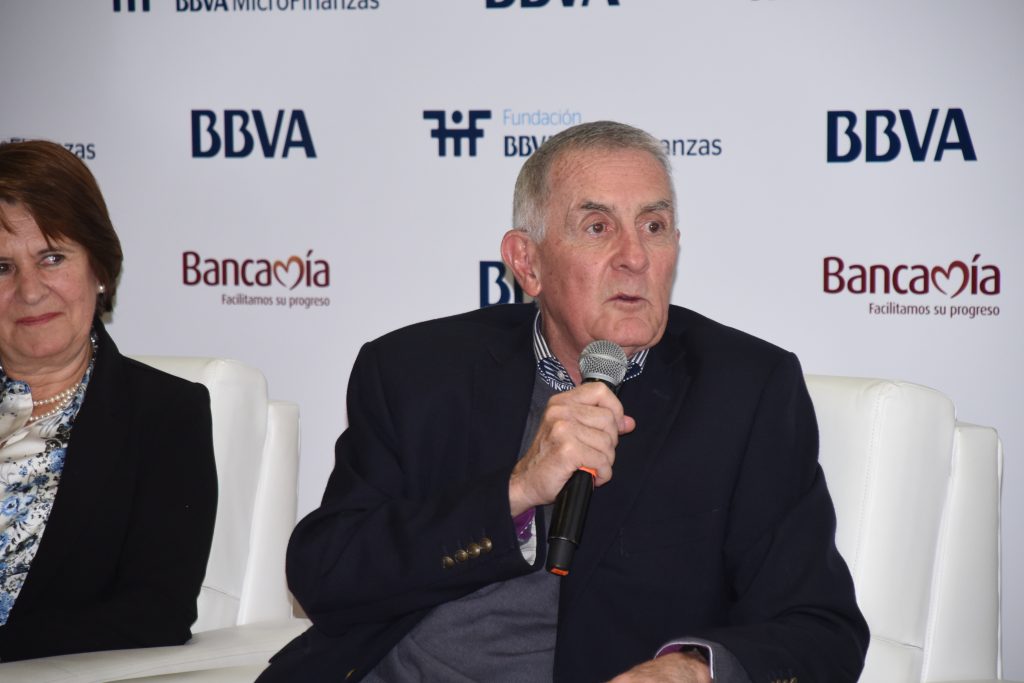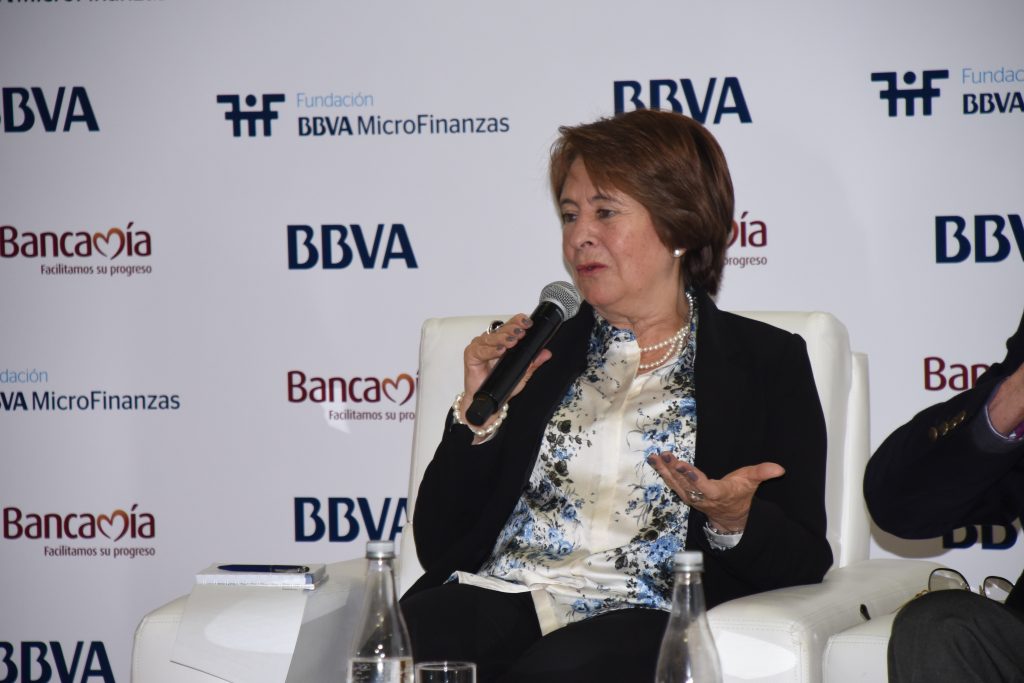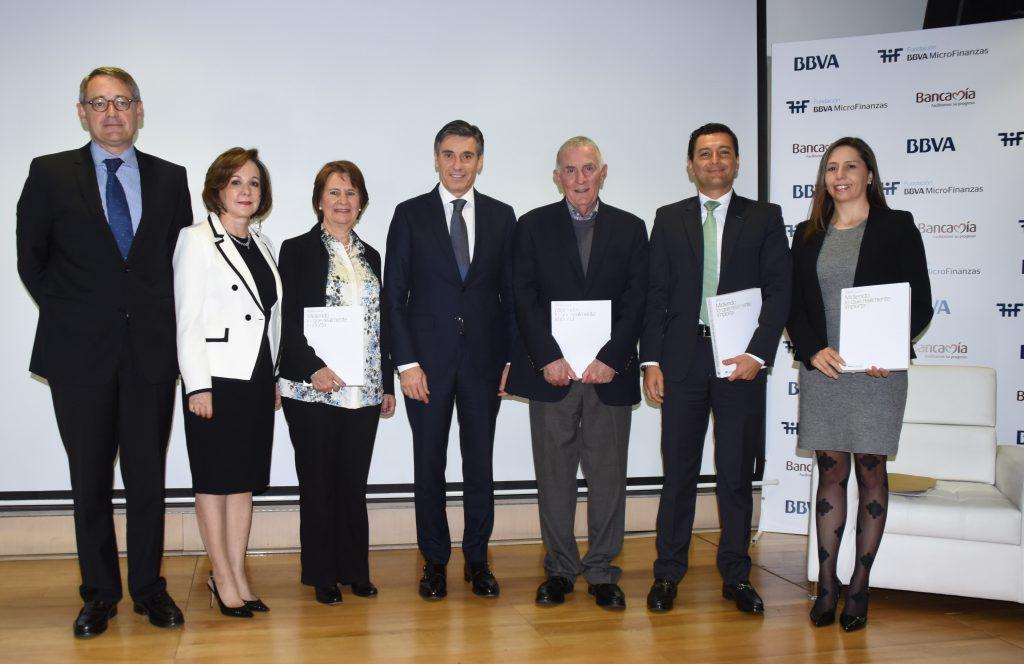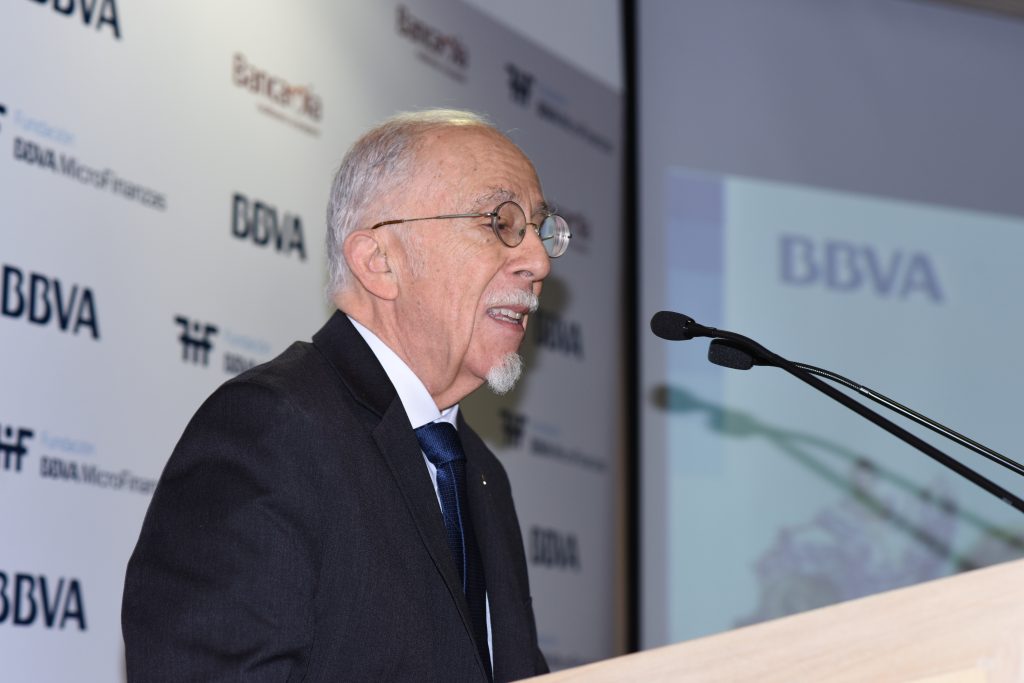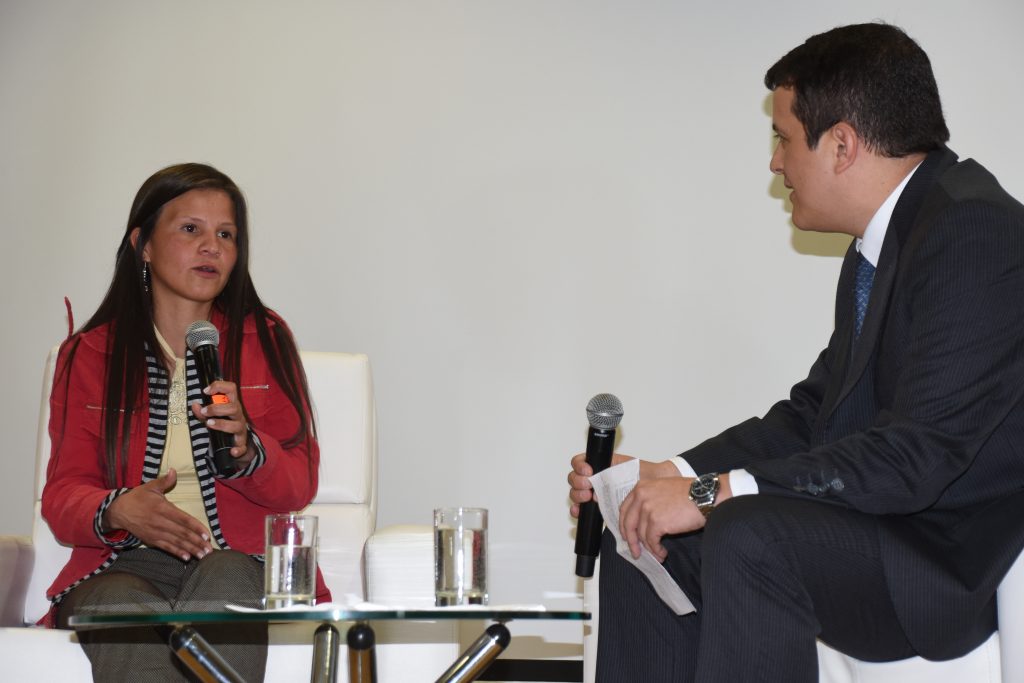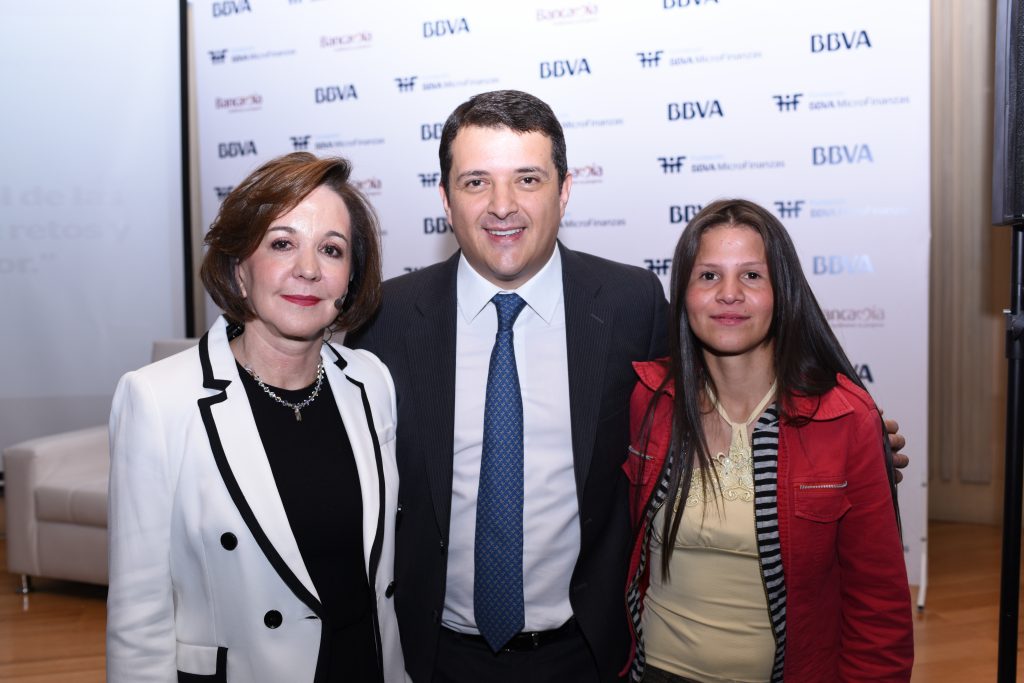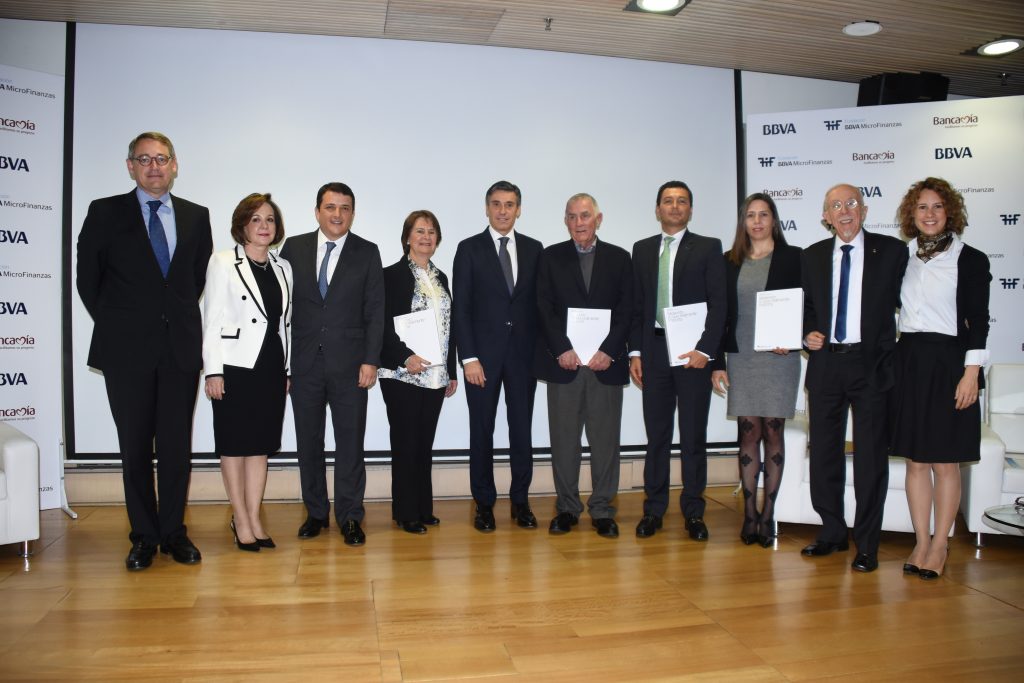More than 850,000 vulnerable people are served by Bancamía in Colombia, an entity of the BBVA Microfinance Foundation, who presented its annual report today in Bogota, entitled Measuring what really matters. To this effect, Bancamía promotes growth and reduces inequality, a key task in post-conflict Colombia.
In 2016, the BBVA Microfinance Foundation’s entity was once again ranked among the 50 most valuable Colombian brands in the services sector. More than half of the people served by Bancamía are women, and more than 70% are vulnerable. They are largely entrepreneurs who provide for their families by means of their own effort along with the support of the microfinance institution.
- Óscar Cabrera, executive president of BBVA Colombia, during his intervention at the presentation of BBVAMF’s annual report in Colombia
- Stephanie G. Van Gool, director of BBVAMF Impact Assessment and Strategic Development, presents the 2016 Social Performance Report of the BBVAMF
- Attendees at the presentation of the BBVAMF annual report in Colombia
- Margarita Correa, president of Bancamía’s Board of Directors, moderates the Panel “Development and impact of microfinance in Colombia: Challenges and opportunities of the sector”
- Jorge Castaño, financial superintendent of Colombia, during the panel
- María Pilar Galindo, assistant director for Market Development of Colombia’s Finance Ministry
- Carlos Gustavo Cano, consultant and expert statistician in the rural sector
- The president of Asomicrofinanzas, María Clara Hoyos, during her panel intervention
- Javier M. Flores, BBVAMF CEO, together with the panelists
- Claudio González-Vega, chairman of the BBVAMF Board of Trustees, during the presentation
- Jessica, an entrepreneur and client of Bancamía, shares her experience with the BBVAMF. On the right, Miguel Ángel Charria, executive president of Bancamía
- Margarita Correa, president of Bancamía’s Board of Directors, Miguel Ángel Charria, executive president of the entity and Jessica, entrepreneur
- Javier M. Flores, BBVAMF CEO, with the participants of the presentation, pose with the 2016 Social Peformance Report
“Microfinance is a very powerful tool to advance towards social inclusion and collective well-being”, declared Jorge Castaño, the financial superintendent of Colombia, during the event.
According to Miguel Ángel Charria, executive president of Bancamía, “the entity has been working for eight years for the productive development of more than 1.3 million Colombians, who, through their microbusinesses, are changing realities and contributing to the country’s economic growth”.
For her part, Stephanie G. Van Gool, director of BBVAMF’s Impact Assessment and Strategic Development, claimed that “after two years with the entity, almost half of the poor clients escape poverty. Furthermore, in a country where less than 40% of the adult population possesses a bank account, Bancamía’s coverage of rural areas is relevant. Nearly 50% of the new clients in 2016 live in the countryside.”
Carlos Cano, a consultant and expert statistician in the rural sector, commended Bancamía’s efforts in these areas.
“This entity has worked to tear down barriers of financial inclusion in rural initiatives”, Carlos Cano.
The BBVA Microfinance Foundation, who this year celebrates its tenth anniversary, was created by the BBVA Group, as part of its corporate social responsibility. In ten years, it has disbursed more than 8.2 billion dollars in productive loans.
“It is gratifying for us to see how this local initiative that took off almost 10 years ago, is starting to bear fruits, not only in the lives of more than 850,000 clients currently served by Bancamía in Colombia who are largely women, but also in the second generation who can now access higher education- an option which was difficult to consider several years back”, declared Óscar Cabrera, executive president of BBVA Colombia.
Likewise, Claudio González-Vega, president of the BBVA Microfinance Foundation’s board of trustees assured that “the Foundation has been able to strengthen and consolidate a group of leading microfinance entities in five Latin American countries. Currently, it serves more than two million people in these countries. 77% of them are vulnerable and 60% are women.”

Javier M. Flores, BBVAMF CEO, Jessica Hernández, an entrepreneur and client of Bancamía, Claudio González-Vega, chairman of the BBVAMF Board of Trustees and Miguel Ángel Charria, executive president of Bancamía. [From left to right]
The BBVAMF’s efforts in post-conflict Colombia
Alined with its mission to promote the sustainable and inclusive social and economic development of vulnerable people, the BBVA Microfinance Foundation also supports the victims of the post-conflict situation in Colombia. Bancamía is present in 247 out of 322 priority districts. During his visit in Bancamía, the World Bank’s president, Jim Yong Kim, highlighted the key role of microfinance in a country’s development while it works to overcome years of conflict. “With access to finance, the entrepreneurs can better manage risks, grow and create employment”, he said.
Thanks to an agreement with the Colombian Agency for Reintegration (ACR), Bancamía works to achieve the reinsertion of demobilized people and their businesses can prosper and they could legally develop their projects. This union with the ACR, which serves the majority of the demobilized in the country, aims to facilitate their access to financial services and skills training aided by reintegration experts.
More than 250 of these professionals have received training in financial education from the BBVA Microfinance Foundation’s entity.
The BBVAMF’s work is aligned with the Goals of the United Nations’ 2030 Agenda, who recently conceded a consultative status to the Foundation. It is contained in the wording of this universal declaration that “there can be no sustainable development without peace and no peace without sustainable development.”


